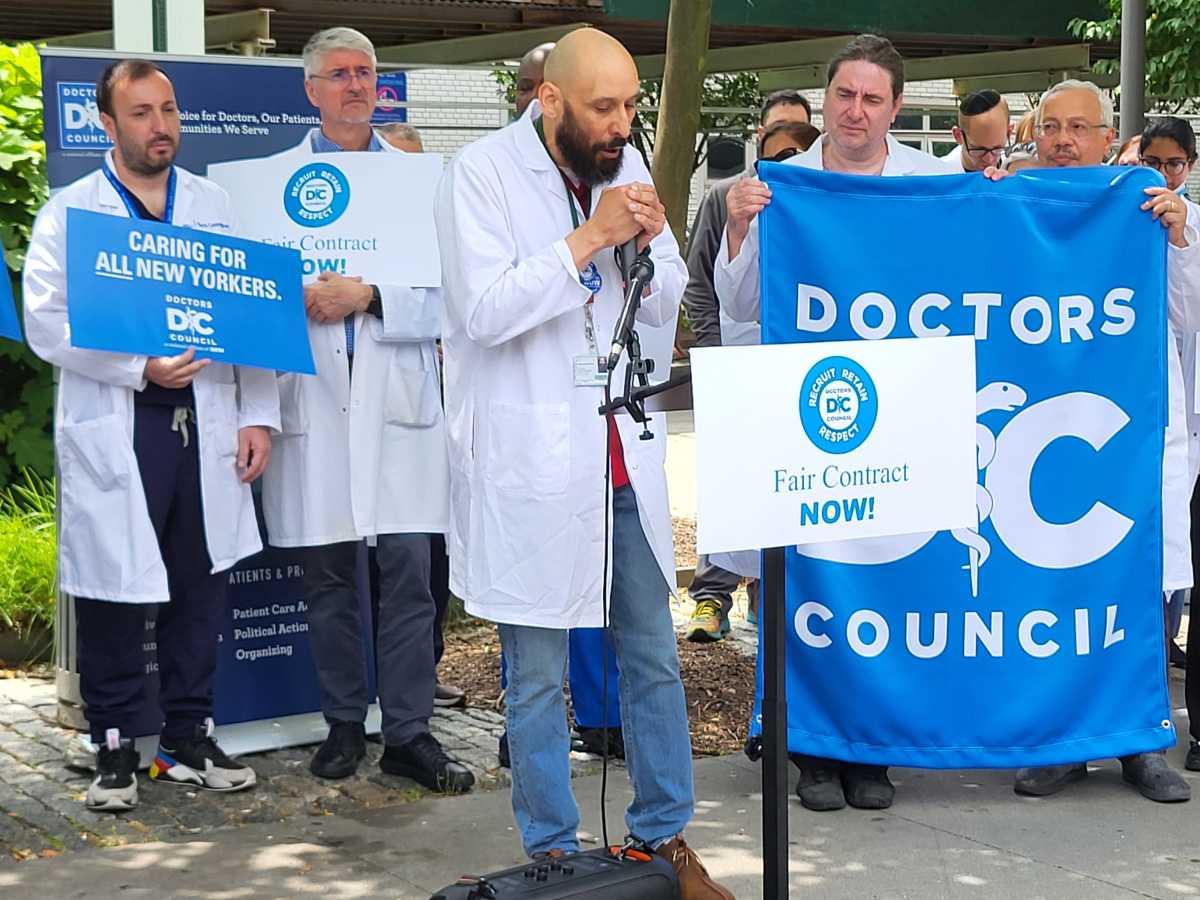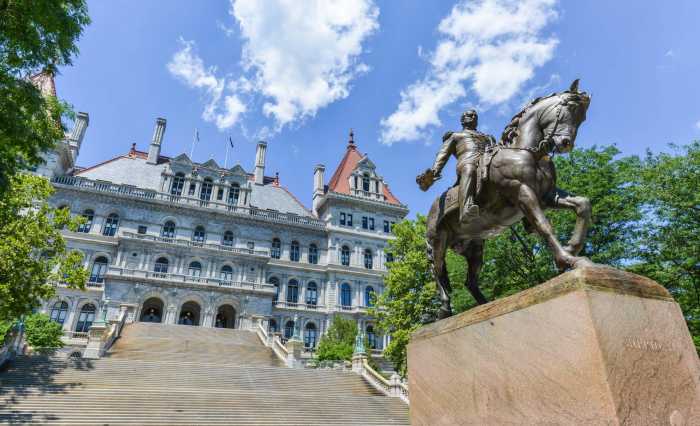As doctors from four NYC Health + Hospitals (H+H) facilities prepare to potentially walk off the job starting Jan. 13, a Bronx doctor said such action may be necessary to bring about long-term change in the system. The union, he noted, is calling for salary increases and better working conditions, including shorter shifts and more time with patients.
“At some point, we have to take some kind of drastic measures to get [hospital leaders] to listen, to see this as a crisis,” said Dr. Joaquin Morante, a Bronx native and pulmonary critical care doctor at Jacobi Medical Center.
Members of the Doctors Council-Service Employees International Union (SEIU) have been locked in a contract dispute since September 2023 with NYC Health + Hospitals (H+H) and affiliates, including Mount Sinai and NYU. About 97% of members voted in favor of the work stoppage.
Nearly 1,000 doctors working for Jacobi, North Central Bronx Hospital, Queens Hospital Center and South Brooklyn Health could strike, and about 2,800 total are affected under the contract, according to a union spokesperson.
Both H+H administrators and the union say they hope to avert a strike.
“We value physicians who serve patients at NYC Health + Hospitals every day,” a spokesperson for H+H told amNewYork Metro last week. “We continue to encourage all parties involved to work together at the bargaining table to prevent a strike and ensure that quality care remains uninterrupted for our patients.”
Morante said while he is deeply concerned about what would happen if he can’t see his patients next week, he is also alarmed by the “slow bleed” of physicians from the H+H system.
Morante has long been concerned about working conditions at his hospital. At a June 14 rally outside Jacobi, he and others spoke of the harmful effects of long shifts, frequent turnover, delayed medical procedures and long wait times, under which doctors and patients alike are suffering. Jacobi, located in the Morris Park neighborhood, houses the borough’s only burn center and handles emergency trauma, bariatric surgery, pediatrics, women’s health and more.
Negotiations have seen little progress since the summer, according to Morante. He noted that his job has become increasingly challenging as the community, still reeling from the aftermath of the COVID-19 pandemic, now grapples with what he describes as “a pandemic of chronic disease,” exacerbated by delayed care. With emergency visits and inpatient hospitalizations surpassing pre-pandemic levels, he remarked, “We traded one pandemic for another.”
Morante said he regularly overbooks the number of patients he is slotted to see and often has to ask others to do the same. In that way, doctors take it upon themselves to “fill in the deficiencies of the system,” which is unsustainable, he said. “[The potential strike] is our way of saying enough is enough.”
The staffing shortage at Jacobi resulted in the loss of the entire rheumatology department, which treated patients with arthritis and autoimmune diseases, Morante said. The hospital has been unable to hire a full-time rheumatologist for months and is instead hiring doctors on a temporary basis, which Morante called a “Band-Aid” approach. Jacobi now has to send rheumatology patients to other hospitals such as Lincoln and Metropolitan, which are also “busting at the seams,” he said.
Morante said the threat of a strike is a demand for long-term sustainability and investment in the system, rather than what he called “crisis management mode” by H+H.
“What we need now is a proactive plan, a preventative plan, a plan that takes care of our communities long term,” Morante said.
Reach Emily Swanson at eswanson@schnepsmedia.com or (646) 717-0015. For more coverage, follow us on Twitter, Facebook and Instagram @bronxtimes






















